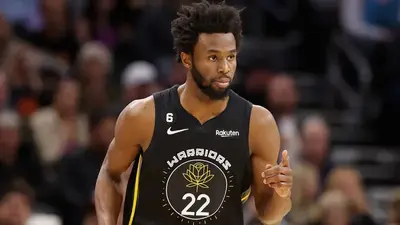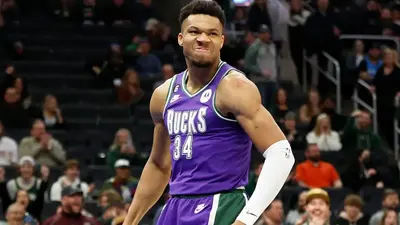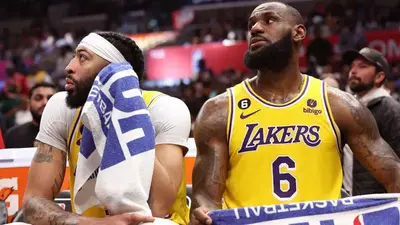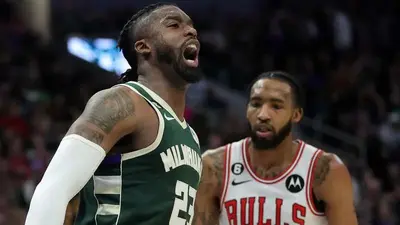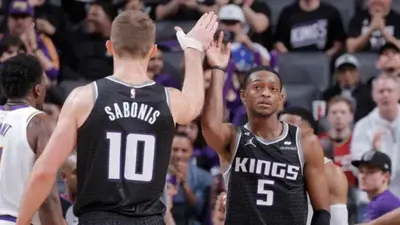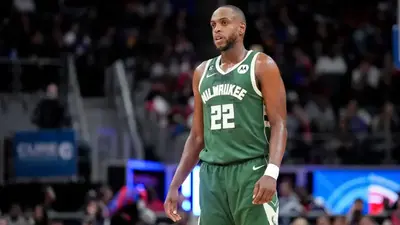NBA
Lakers' Austin Reaves is making a leap, but Gilbert Arenas rule may make it hard for L.A. to pay him for it
Take a deep breath, Lakers fans. I know all of this feels familiar. An undrafted guard has emerged as a key rotation player. He is thriving as the Lakers deal with major injuries elsewhere on the roster. His presence is keeping a potentially doomed season afloat. He's setting himself up for a major payday in the process. The Lakers lost Alex Caruso when this happened two years ago. Here's the good news: the Lakers can legally match any offer another team makes Austin Reaves as a restricted free agent this offseason. If they want to keep him, it will be well within their power to do so.
Until a few weeks ago, doing so seemed like it would be a relatively affordable endeavor. While the Lakers could've locked Reaves up for two more years at close to a minimum salary had they managed their cap sheet a bit more effectively in 2021, the advantage of letting him reach restricted free agency in 2023 was that it effectively capped what the Lakers could offer him at the maximum amount allowable by the Early Bird Rights they've gained by having him on the team for two years. As Spotrac's Keith Smith laid out in his excellent piece on Reaves' new contract, that worked out to roughly $51 million over four years. He would make roughly $14.1 million in the final year of such a contract, a figure that's probably lower than what he is worth now.
In other words, this would've been a bargain: a four-year commitment to an established 24-year-old with no significant history of injuries in a salary environment expected to see significant cap growth. No team is foolish enough to turn down that sort of opportunity. Not even the one that lost Caruso.
Of course, that relied on the idea that, from a value standpoint, Reaves was relatively similar to Caruso. They are very different players, but they represented similar things to the Lakers. For the most part, neither were particularly impressive box score players. Their impact was felt in advanced metrics and on-off numbers. Good things happened when Caruso and Reaves were on the floor. The progression felt somewhat similar: undrafted youngster grows into solid role player and earns solid role player money.
The last few weeks have created an enviable problem for the Lakers. Reaves is becoming something more than just a solid role player. While it's far too early start speculating about stardom, Reaves is quietly growing into one of the most efficient offensive guards in the NBA.
He might have just saved the Lakers' season on Sunday when his 35 points held off an Orlando Magic comeback and preserved a desperately needed victory. He's averaging 15.4 points per Game since the Lakers traded Russell Westbrook on a preposterous 58-43-81 shooting line that has never been matched by a 15-point scorer over a full season. In the month of March, he has attempted 77 total free throws. That is more than DeMar DeRozan (67), James Harden (58) and Trae Young (53).
And these aren't role player passes. These are high-end starting point guard passes... and they all come from a single half of a single game.
"Wow, Sam, are these Austin Reaves' passing highlights for the entire season?"
— Sam Quinn (@SamQuinnCBS) March 20, 2023
"No, this is from ONE HALF against the Magic on Sunday." pic.twitter.com/ZWXSiJIeFN
It's too early to say where this is going, but it hardly matters because Reaves scales up or down so seamlessly. He's spent the first two years of his career playing with Westbrook and LeBron James. He's perfectly comfortable functioning in a catch-and-shoot capacity when necessary. But stick him Dennis Schroder and D'Angelo Russell instead and he turns into this higher-usage free-throw merchant and floor general. Virtually every metric praises his defense, and the eye test supports him there. Reaves was far more advanced than most rookies in terms of footwork and floor-navigation a year ago, but lacked the physical strength to hold his own in the post or fight through screens. He's bulked up this season, and at 24, he still has room for both literal and figurative growth. Every team in the NBA wants an Austin Reaves.
And this is where things get complicated for the Lakers, because while they can offer Reaves only the Early Bird max (which starts at 105 percent of the average player's salary), other teams have no such constraint. So long as they have the cap space to do so, they can offer Reaves an extra $29 million on top of the $51 million the Lakers are free to give him for a total of $80 million over four years.
Once again, Lakers fans, take a deep breath. This does not mean the Lakers will be unable to retain Reaves. The NBA offers a workaround, but it's a risky one. In 2002, the Washington Wizards used their cap space to offer then-restricted free agent Gilbert Arenas a six-year, $60 million contract that exceeded Golden State's Early Bird Rights. This meant that they legally could not match the offer, and were forced to watch Arenas grow into an All-Star with the Wizards. Soon after, the NBA changed the rules to ensure that never happened again. This is the infamous Gilbert Arenas Provision.
Players limited by the Arenas provision, like Reaves, cannot make more than the non-taxpayer mid-level exception in the first year of a new deal. Their second-year salary on such a contract would see only a 5% increase in salary. But years three and four? They can go all the way up to the max. The signing team can use its cap space to structure the cap hits as the average annual salary in each of the four years. But the Lakers don't have cap space, and would therefore be stuck with that backloaded structure. Here's what a maximum-salary Arenas Provision deal would look like to the Lakers, as projected by Smith.
2023-24 | $11,368,000 |
2024-25 | $11,936,400 |
2025-26 | $27,724,010 |
2026-27 | $28,971,590 |
Total | $80,000,000 |
You could argue that this salary structure actually benefits the Lakers financially, at least compared to paying Reaves a flat $20 million per year. Their roster is currently constructed to operate above the cap, which will mean re-signing their own players and paying the luxury tax for the fourth consecutive season. That would subject them to the repeater tax, which will make limiting next year's team salary paramount.
By backloading the deal, the Lakers would give themselves two years to sort out their finances ahead of Reaves' jump. There are two other factors worth watching here: the new CBA (which is being negotiated as we speak) and the new media rights deal (which is expected to kick in for the 2025-26 season). The former could change the luxury-tax rules in ways that either help or hurt the Lakers. The latter could increase the cap by so much that an enormous salary jump for Reaves just isn't that bothersome.
But remember, the Lakers are not the Warriors or the Clippers. Even though they outspend most of their comPetition, they operate within a budget, and that's what makes this situation so tricky for the Lakers: they literally can't set a budget for the 2025-26 campaign right now because they don't currently have a single player under contract for that season. In fact, only three Lakers have fully guaranteed contracts for next season: James, Anthony Davis and Max Christie.
The Lakers will have a better idea of their outlook by this summer, when, at the very least, they will have to make long-term decisions on D'Angelo Russell and Rui Hachimura. But between the summer of 2023 and the 2024 offseason, they'll also need to make decisions on Christie and whoever they retain among the non-guaranteed group of Malik Beasley, Mo Bamba and Jarred Vanderbilt. And, of course, James and Davis.
Are James and Davis still earning max money in 2026? Does Russell expect to remain a $30 million player in his next deal, and does he want a long-term pact or short-term flexibility? How much does the idea of a possible cap spike windfall factor into negotiations for players like Hachimura, Vanderbilt and Bamba, who have thus far earned limited salaries in their careers and may want to see if 2025 free agency looks anything like 2016 once did? The Lakers still have draft picks to dangle in trade discussions this summer. There might be another meaningful player or two to consider here. For all we know, the Lakers will be entering the 2025-26 season having paid the luxury tax in the previous five seasons and the repeater tax in the last two of them.
A team with the revenue the Lakers have at their disposal probably shouldn't fret over that... but... well... that was true in 2021 as well and we all saw how that went for Caruso. The market is going to be a bit more limited this time around. Any team hoping to throw this sort of offer at Reaves would need at least $20 million in cap space, and according to Smith's most recent projections, only eight teams fit the bill right now: Houston, Utah, San Antonio, Oklahoma City, Detroit, Indiana, Sacramento and Orlando. The Rockets, Kings, Pacers and Pistons probably have too much invested in guards to justify this sort of expense.
But the Magic have only specialists in their backcourt and would absolutely love a player as balanced as Reaves. The Jazz have only two guards under guaranteed contracts for next season in Collin Sexton and Ochai Agbaji. The Thunder aren't positionally picky and will gladly take a bit more ball-handling and defensive help. Gregg Popovich has no love for the Lakers, and could really use an upgrade on Tre Jones at point guard even if he did. More cap space teams could emerge in the coming months. There are going to be suitors here.
Reaves may not quite reach his $80 million max, but he's playing himself out of the $51 million deal the Lakers surely hoped to give him this offseason. No matter where the final number falls, it's almost certainly going to force the Lakers into a backloaded contract, which will, in turn, enforce upon them an uneasy degree of financial uncertainty. Whatever the price winds up being, the Lakers should pay it. But after what happened to Caruso, their front office has lost the benefit of the doubt on such matters. Fans will be uneasy until the ink dries on his next contract.
-
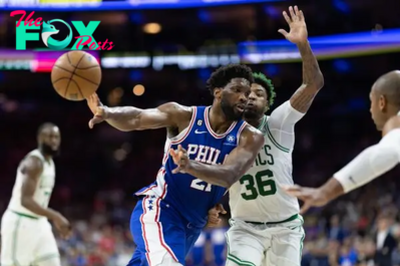
 NBA1h ago
NBA1h agoDraftkings Best NBA Showdown Picks: Knicks vs. 76ers 4/25/24
-
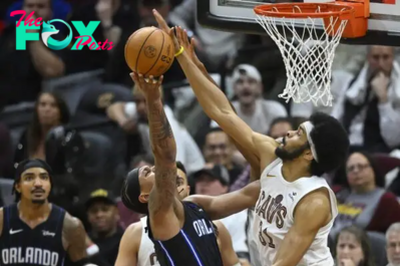
 NBA1h ago
NBA1h agoOrlando Magic vs Cleveland Cavaliers Prediction 4-25-24 Picks
-
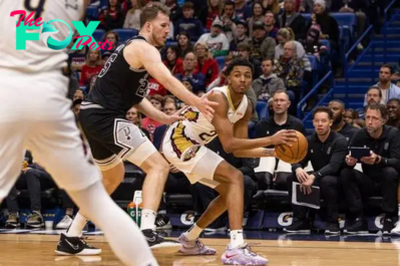
 NBA3h ago
NBA3h agoTrey Murphy III Player Prop Bets: Pelicans vs. Thunder | April 27
-
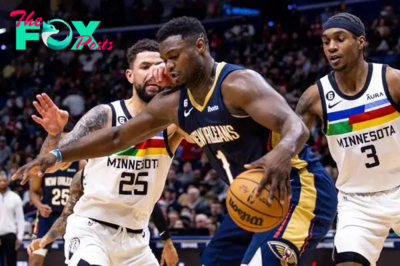
 NBA3h ago
NBA3h agoJaden McDaniels Player Prop Bets: Timberwolves vs. Suns | April 26
-
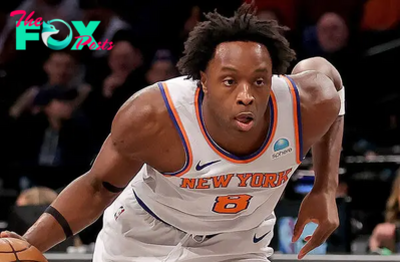
 NBA4h ago
NBA4h agoKnicks vs 76ers Predictions, Picks & Odds - Game 3
-
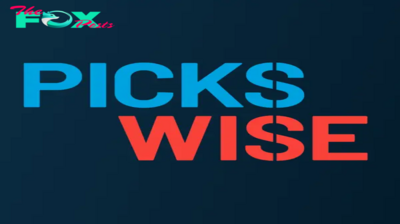
 NBA5h ago
NBA5h agoBetMGM bonus code for Nuggets vs Lakers today good for $1,500 promotion | Pickswise
-

 NBA5h ago
NBA5h agoNBA Player Props & Odds Today - Best Maxey Props | Pickswise
-
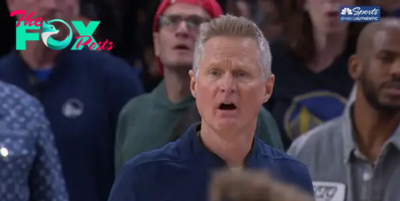
 NBA5h ago
NBA5h agoSteve Kerr Responds To Warriors Fans Who Want Him Fired
